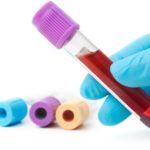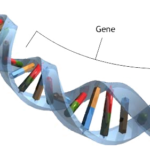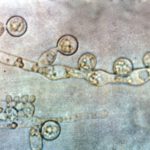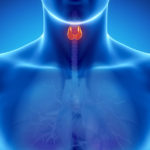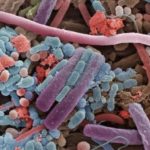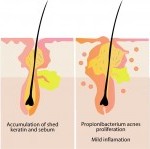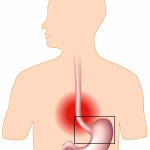The NutriSTAT test is a fully comprehensive nutritional analysis which measures over 240 important nutrient biomarkers, enabling us to identify nutritional & biochemical imbalances that may be a root cause of complex or chronic health conditions. The test evaluates:
- organic acids – chemical indicators of metabolic dysfunction, relating to energy production, liver detoxification, neurotransmitter production, B vitamin deficiencies, antioxidant requirements and digestive health
- vitamins & minerals such as vitamin D, activated B12, serum folate, zinc, copper, selenium, magnesium, chromium and iodine
- toxic heavy metals such as lead, mercury, cadmium, nickel and arsenic
- markers of oxidative stress – which can lead to DNA damage within cells
- markers relating to cardiovascular health – including not only cholesterol and triglycerides, but a detailed breakdown of LDL sub-fractions, which provide a superior assessment of coronary artery disease risk compared to other conventionally available lipid tests
- other markers which contribute to inflammation and qualify the risk of cardiovascular disease, including CRP, homocysteine, lipoprotein (a), iron studies and the blood clotting protein fibrinogen
- markers relating to blood sugar regulation, including fasting glucose & insulin
- markers relating to hormone health including insulin, DHEAS, oestrogen, testosterone, sex hormone binding globulin, prolactin, FSH and luteinising hormone
- a complete thyroid panel, including TSH, free T3, free T4, reverse T3 and thyroid auto-antibodies
- ratios of essential fats such as omega 3, 6 and 9 in relation to saturated and trans fats
- amino acids profile, assessing these crucial building blocks for immune cells, muscle and brain chemicals
- renal and liver function markers
This test provides actionable insight and facilitates the development of personalised treatment plans in relation to a wide range of health issues including depression, fatigue, weight gain, hormone imbalance, anxiety, mental health disorders, chronic pain, inflammatory skin conditions, allergies, osteoporosis, recurrent headaches or migraines, low libido, insomnia, hypertension, elevated cholesterol and diabetes. It is also the ideal comprehensive health check for people wanting to take a proactive approach to their health.
How to complete the NutriSTAT test
PREPARATION FOR URINE COMPONENT OF NutriSTAT TEST (to be done at home on the morning of your blood draw)
3 days prior to urine testing: Stop taking any nutritional supplements and ensure that you have discussed any medications that you are taking with Amanda. If you have taken antibiotics recently, it is best to wait 2 weeks after finishing the course before testing. Note for female clients, please do not complete this test while you are menstruating.
2 days prior to urine testing: Avoid eating or drinking any of the following: alcohol, caffeine (tea, coffee, or any other caffeinated drinks), fruit juices, chocolate, cocoa, cheese, grapes, citrus fruits, avocado, tomato, banana, kiwi fruit, pineapple, plums, cranberries, pecans, walnuts and vanilla.
PLEASE NOTE THAT THESE FOODS ARE NOT ALWAYS LISTED ON THE NutriSTAT TEST INSTRUCTIONS, BUT FOR INCREASED ACCURACY, I WOULD PREFER YOU TO AVOID THEM.
1 day prior to urine testing: Limit fluid intake to roughly 1 litre across the day, with no more than 250ml after 8pm, so your urine isn’t too dilute the next morning. Important to note: if you wake in the night and need to urinate, please collect a sample of this urine in a clean plastic cup or container and add this to the morning sample the next day. You are aiming to collect all the breakdown products which are excreted in your urine over a 6-9 hour period as you sleep.
Day of urine testing: Collect first morning urine into the 50ml short wide pot with yellow lid (or a clean larger container of your own if you prefer). Follow the test kit diagrams as to how to use the monovette collection tubes to draw up the urine, then snap the piston rods off and replace the stoppers to seal them. Place the two filled and labelled monovette collection tubes in a refrigerator until you are ready to attend your blood draw.
PREPARATION FOR BLOOD DRAW COMPONENT OF NutriSTAT test.
Night before blood draw: Fast for at least 8 hours over night and until your blood draw appointment.
Morning of blood draw: After completing the urine sample, ensure that you drink some water, so you aren’t dehydrated for the blood draw. Take the refrigerated urine samples, the blood draw kit, completed test request form and courier bag with you to the blood draw location. If it is a hot day, it would be worth taking the urine samples in a chilly bin or cool box. After the blood draw, wait until the samples have been centrifuged and returned to you, then place both the urine and blood samples in the courier bag, along with the test request form and take a note of the tracking details. Drop at your nearest NZ Couriers depot. For Auckland residents, the nearest depot to the Labtests Mt Wellington site is at 32 Botha Road, Penrose and closes at 7pm. Ignore the Pre-8am sticker on the courier bag, which is for the courier’s attention.

